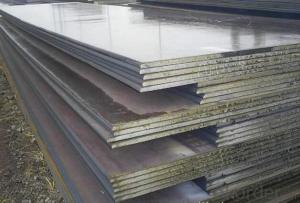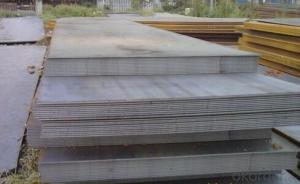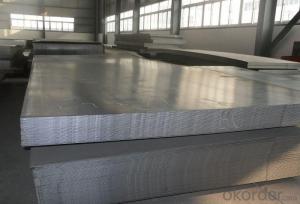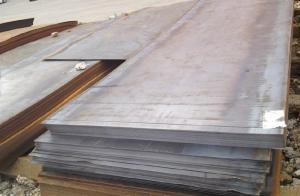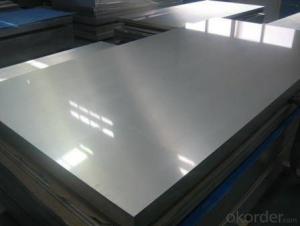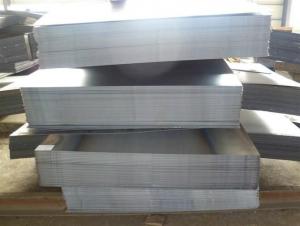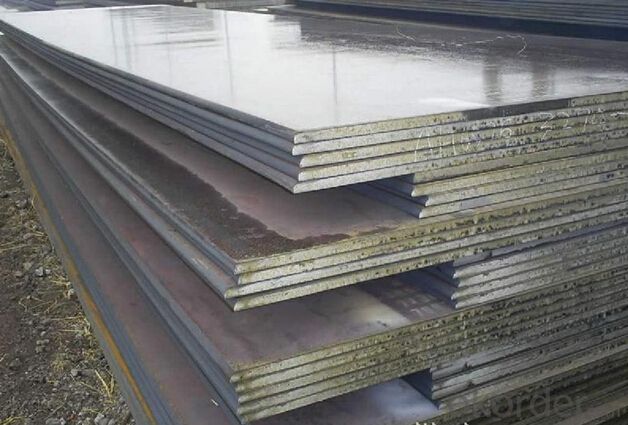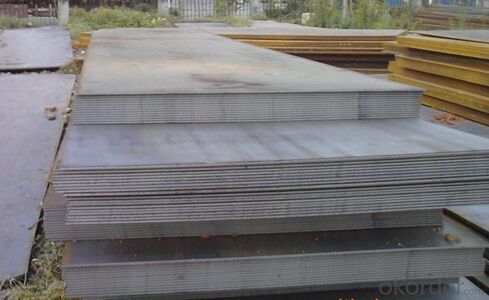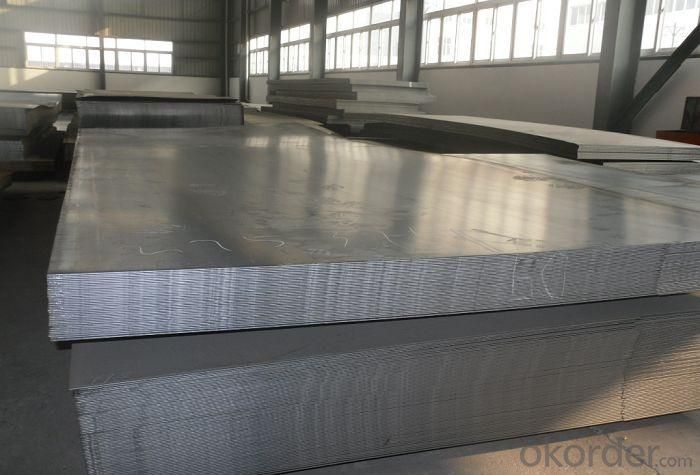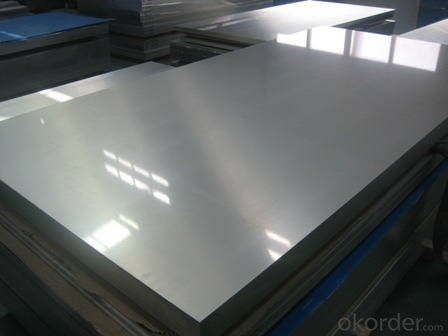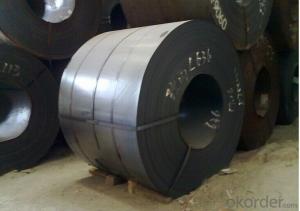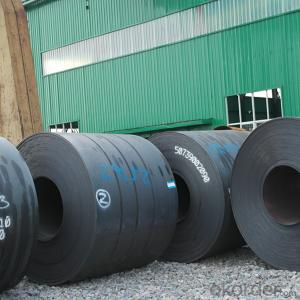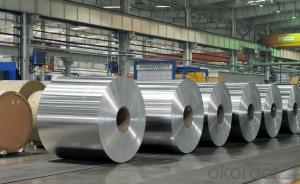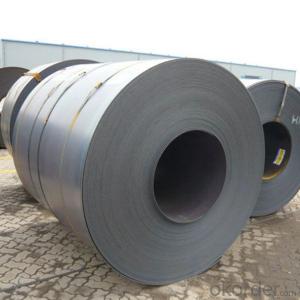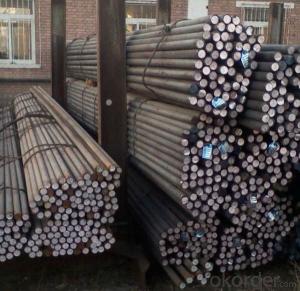Q195 Grade Slitting Edge Hot Rolled Steel Coils Sheet
- Loading Port:
- Tianjin
- Payment Terms:
- TT OR LC
- Min Order Qty:
- 3 m.t.
- Supply Capability:
- 100000 m.t./month
OKorder Service Pledge
OKorder Financial Service
You Might Also Like
Specification
Q195 Grade Slitting Edge Hot Rolled Steel Coils Sheet
Detailed Information of Q195 Grade Slitting Edge Hot Rolled Steel Coils Sheet
| C | Si | P | S | yield Strength MAp | Tensile strength MAp | Elongation % | ||
| A36 | 0.24 | 0.4 | 0.045 | 0.03 | 250 | 400-520 | 26 | |
| C | Si | Mn | P | S | Cu | |||
| A283 | ≤0.27 | 0.15-0.4 | ≤0.9 | ≤0.035 | ≤0.04 | ≥0.2 | ||
| Thickness: | 6mm, 8mm, 12mm, 16mm, 20mm, 25mm, 30mm, 50mm, 80mm, 100mm, 150mm, 200mm | |||||||
| Width: | 1500mm, 1800mm, 2000mm, 2200mm, 2500mm | |||||||
| Length: | 6000mm, 8000m, can cut to width and length | |||||||
| Packing Details; | according to customer‘s require or export’s standard | |||||||
| Delivery time; | 7 days for stock sizes, 20-25 days for new production sizes | |||||||
| Port: | Tianjin China | |||||||
Related Products Overviews of Q195 Grade Slitting Edge Hot Rolled Steel Coils Sheet
Product Name | Typical Grades | Diameter(mm) | Standard Adopted |
Carbon Steel | 20 (1020/S20C/C22) |
Ø16-Ø300 |
GB/SAE/ JIS/DIN |
40 (1040/S40C/C40) | |||
45 (1045/S45C/C45) | |||
Bearing Steel | GCr9 (51100/SUJ1) |
Ø12-Ø250 | |
GCr15 (52100/SUJ2/100Gr6) | |||
GCr9SiMn (A485-Gr.1/SUJ3) | |||
Cr-Mo Steel | 20Cr (5120/SCr420H/20Cr4) |
Ø12-Ø250 | |
40Cr (5140/SCr440/41Cr4) | |||
42CrMo(4140/SCM440/42CrMo4) | |||
Gear Steel | 20CrNiMo |
Ø16-Ø600 | |
20CrMn(5115/SMnC420/20MnCr5) | |||
20CrNiMo(8620/SNCM220/20CrMiMo2) |
Related Products Application of Q195 Grade Slitting Edge Hot Rolled Steel Coils Sheet
Carbon Steel | l Mold bottom l Plastic mold l Construction machinery parts l Automobile parts l Security grills l Screens l Construction |
Bearing Steel | l Aerospace l Navigation l Nuclear energy l Chemical industry l Electronic information l Petrochemical l Instrument and meter l Transportation |
Cr-Mo Steel | l Mechanism & Fasteners gear l Stressed components for vehicles l Engines and machines l Parts of larger cross-section |
Gear Steel | l All kinds of gears l Statically and dynamically stressed component for vehicles l Engines and machine l Larger cross-section parts l Crankshafts |
Company Introduction of Q195 Grade Slitting Edge Hot Rolled Steel Coils Sheet
CNBM International Corporation is the most import and export platform of CNBM group(China National Building Material Group Corporation) ,which is a state-owned enterprise, ranked in 270th of Fortune Global 500 in 2015.
With its advantages, CNBM International are mainly concentrate on Cement, Glass, Iron and Steel, Ceramics industries and devotes herself for supplying high quality series of refractories as well as technical consultancies and logistics solution.
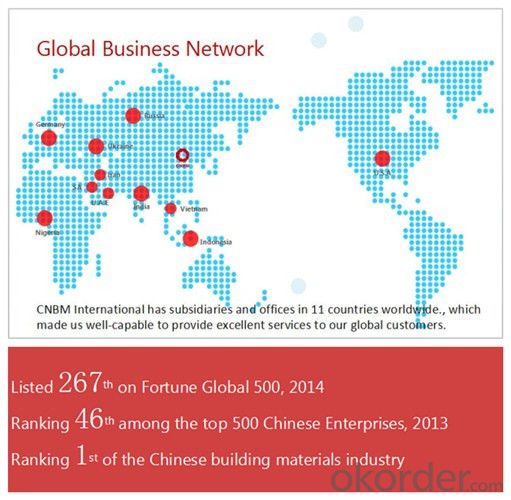
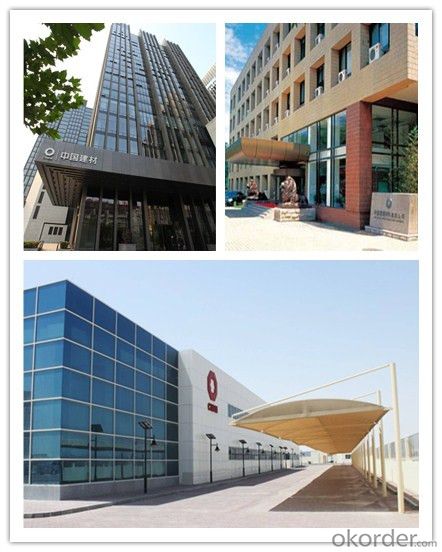
After-sale service | l CNBM provides the services and support you need for every step of our cooperation. We’re the business partners you can trust; you can relax and get on with doing business. l For any problem, please kindly contact us at any your convenient time, we’ll reply you in our first priority within 24 hours
|
Advantages
| l Industry experience over 20 years. l Shipment of goods -More than 70 countries worldwide. l The most convenient transport and prompt delivery. l Competitive price with best service. l High technical production line with top quality products. l High reputation based on best quality products.
|
Packaging & Delivery of Q195 Grade Slitting Edge Hot Rolled Steel Coils Sheet
Packaging Detail | Sea worthy packing /as per customer's packing instruction |
Delivery Detail | 15 ~ 40 days after receiving the deposit |
Products Show
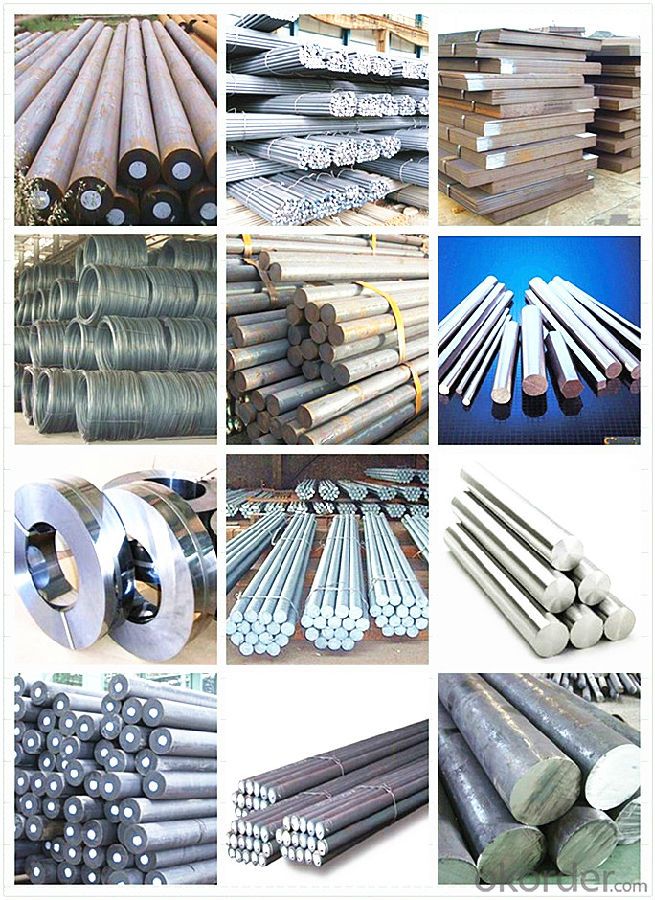
FAQ:
Are you a trading company or manufacturer? | Manufacturer |
What’s the MOQ? | 3 metric ton |
What’s your delivery time? | 15-35 days after downpayment received |
Do you Accept OEM service? | Yes |
what’s your delivery terms? | FOB/CFR/CIF |
What's the Payment Terms? | 30% as deposit,70% before shipment by T/T |
Western Union acceptable for small amount. | |
L/C acceptable for large amount. | |
Scrow ,Paybal,Alipay are also ok | |
Why choose us? | Chose happens because of quality, then price, We can give you both. Additionally, we can also offer professional products inquiry, products knowledge train (for agents), smooth goods delivery, excellent customer solution proposals. |
What's your available port of Shipment? | Main Port, China |
What’s your featured services? | Our service formula: good quality+ good price+ good service=customer's trust
|
Where are your Market? | Covering more than 160 countries in the world |
- Q: How does special steel contribute to reducing material waste?
- Special steel contributes to reducing material waste through its exceptional properties and capabilities. Firstly, special steel is highly durable and has a longer lifespan compared to other materials, allowing for extended use before replacement or repair is needed. This reduces the amount of waste generated from frequent replacements. Additionally, special steel can be recycled and reused multiple times without losing its quality or performance. This promotes a circular economy by minimizing the need for raw materials extraction and reducing the overall waste generated from manufacturing processes. Furthermore, special steel's versatility and strength enable the creation of lighter and more efficient products, resulting in reduced material consumption. By utilizing special steel in various industries, we can significantly contribute to the reduction of material waste and promote a more sustainable approach to resource management.
- Q: Can special steel be used in the automotive parts manufacturing industry?
- Yes, special steel can be used in the automotive parts manufacturing industry. Special steel is often used in the production of critical automotive components, such as engine parts, transmission systems, and suspension components, due to its high strength, durability, and resistance to wear and corrosion. Special steel alloys, such as stainless steel and alloy steel, offer superior mechanical properties and performance characteristics, making them ideal for manufacturing automotive parts that require high performance and reliability.
- Q: What are the different methods of preventing pitting corrosion in special steel?
- There are several methods to prevent pitting corrosion in special steel. One common approach is the use of corrosion-resistant alloys, such as stainless steel, which contain elements like chromium and nickel that form a protective oxide layer on the surface. Additionally, applying coatings or paints can provide a barrier against corrosive agents. Another effective method is cathodic protection, where a sacrificial anode or impressed current system is employed to protect the steel from corrosion. Regular inspection and maintenance, as well as controlling the environment by reducing exposure to corrosive substances, also play crucial roles in preventing pitting corrosion in special steel.
- Q: What are the properties of corrosion-resistant alloy steel?
- Corrosion-resistant alloy steel possesses properties such as high resistance to rust, corrosion, and oxidation, making it suitable for applications in environments exposed to moisture, chemicals, or extreme temperatures. It typically contains elements like chromium, nickel, and molybdenum, which enhance its resistance to corrosion. Additionally, this type of steel is known for its durability, strength, and ability to maintain its integrity in challenging conditions.
- Q: What are the main characteristics of creep-resistant steel?
- Creep-resistant steel possesses high strength and resistance to deformation at elevated temperatures. It maintains its mechanical properties even under long-term exposure to high stress and high temperatures. Its ability to resist creep, or the gradual deformation under stress, makes it suitable for applications in power plants, boilers, and other high-temperature environments. Additionally, creep-resistant steel exhibits good resistance to corrosion and oxidation, ensuring its durability and longevity in harsh conditions.
- Q: Can special steel be used in food processing applications?
- Yes, special steel can be used in food processing applications. Special steel, such as stainless steel, is commonly used in the food industry due to its excellent corrosion resistance, hygienic properties, and durability. It is safe for food contact, easy to clean, and does not react with acidic or alkaline substances.
- Q: How does special steel perform in mining applications?
- Special steel performs exceptionally well in mining applications due to its unique properties and characteristics. It offers superior strength, hardness, and durability, making it highly resistant to wear, abrasion, and impact. This enables special steel to withstand the harsh and demanding conditions typically encountered in mining operations, including heavy loads, extreme temperatures, and corrosive environments. Additionally, its excellent machinability and weldability facilitate easy fabrication and repair of mining equipment, ensuring prolonged service life and efficient performance. Overall, special steel plays a crucial role in enhancing the productivity, safety, and reliability of mining operations.
- Q: What are the quality control measures for special steel?
- Quality control measures for special steel involve several key steps and processes to ensure that the final product meets the required standards and specifications. These measures typically include: 1. Raw Material Inspection: Thoroughly checking the quality and composition of the raw materials used in the production of special steel, such as ensuring the correct chemical composition and metallurgical properties. 2. Process Control: Implementing strict controls and monitoring throughout the manufacturing process to ensure consistent quality, such as maintaining precise temperature control during heating and cooling processes, controlling the rolling or forging parameters, and ensuring proper heat treatment. 3. Testing and Sampling: Conducting various tests and sampling techniques to assess the quality of the special steel, including mechanical tests (such as tensile strength, hardness), non-destructive testing (like ultrasonic or magnetic particle inspection), and chemical analysis. 4. Dimensional and Surface Inspection: Verifying that the dimensions and surface finish of the special steel conform to the required specifications, such as measuring length, diameter, straightness, and checking for any defects or irregularities. 5. Final Inspection and Certification: Performing a final inspection to ensure that the special steel meets all quality standards and customer requirements. This may involve visual examination, additional testing, and issuing necessary certifications or quality assurance documents. By implementing these quality control measures, manufacturers can ensure the reliability, durability, and consistent performance of special steel, making it suitable for various critical applications in industries like automotive, aerospace, energy, and construction.
- Q: What is special steel? What is special steel?
- There is no uniform definition and concept for special steel at present.It is generally believed that special steel is a kind of steel with special alloy composition, special process smelting and production, special organization and performance, and special requirement.Compared with ordinary steel, special steel has higher strength and toughness, physical properties, chemical properties, biocompatibility and process performance.
- Q: Can special steel be used in the packaging industry?
- Yes, special steel can be used in the packaging industry. Special steel, such as stainless steel, offers excellent durability, corrosion resistance, and strength, making it suitable for various packaging applications. It can be used to manufacture packaging containers, machinery, and equipment, providing a reliable and long-lasting solution for packaging needs.
Send your message to us
Q195 Grade Slitting Edge Hot Rolled Steel Coils Sheet
- Loading Port:
- Tianjin
- Payment Terms:
- TT OR LC
- Min Order Qty:
- 3 m.t.
- Supply Capability:
- 100000 m.t./month
OKorder Service Pledge
OKorder Financial Service
Similar products
Hot products
Hot Searches
Related keywords
